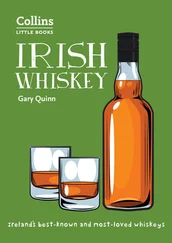But when Straw explained further, Mark had to wonder why he was staffing this Core Vision Department with expensive new hires from the cream of the digital-slacker class. Straw was poaching code-writing princes from computer science departments and subcontinental shantytowns and billing-software companies and failed music-downloading sites. He mentioned three hundred new hires in the past month. That was no PR department. It piqued Mark’s curiosity.
Today, Straw was very excited about the Core Vision thing. But it seemed to Mark that Straw was now calling it New Alexandria. He was apparently describing some sort of Tolkienesque realm where knowledge could be stored and protected. He kept saying that what was needed was all the information in one place; then everyone with access to that information would be able to make perfect decisions.
“Imagine it, Mark,” said Straw from his couch, “all those other operations, muddled by imperfect markets and stunted by the bureaucrats — they will all become obsolete. With a single stroke! And New Alexandria will stand alone. The world will never be the same.”
Mark had long ago blown past the point at which he could say: I’m sorry, what the fuck are you talking about? But there was a limit, even for Mark, to what one could pretend to understand. What were the other operations, and how were they muddled by markets and stunted by bureaucrats? By bureaucrats, Straw usually meant anyone in the public sector, from the president to the postman.
“It does sound extraordinary, James,” said Mark. “But, to be honest, I’m not certain I understand what you mean. You’ll have to go back a bit. If you could.”
At this, James Straw turned quickly on his couch and craned to face Mark. Straw was in good shape for a man his age, but this was the lithe maneuver of a much younger man. Mark found it jarring.
“No. There is no way you could understand it. Not yet. Forgive me, Mark. There is a part of this that I have had to keep even from you. I have partners in the project, great men. Men of vision and risk, like the two of us. But there are rules, procedures.” He waved his hand before his face and shrugged a shoulder, as if to acknowledge the strange reality that even he, James Straw, could be bound by rules and procedures.
“I’ll tell you what,” he said. “Join me on board Sine Wave next week, will you? By then I will have secured the necessary permissions. Can you?”
Sine Wave. Straw’s yacht. At last. Was Mark supposed to say that he would need to check his calendar? Some pretense that Mark was very busy with other professional and intellectual pursuits had always been part of his thing with Straw. But no, this was different; this was new waters.
“It would be my pleasure, James.”
“Excellent.” Straw rose from the couch and crossed to his desk, stabbed at the intercom. “Gertrude. Mark will be joining me at sea next week. Arrange for it. Let’s say Tuesday.”
“You will be at Bilderberg on Tuesday, sir.”
“Balls,” said Straw. “How long is that?”
“Two days in Aberdeen, sir. You are tentative for Thursday transfer to—”
He cut her off. “Yes, yes, fine. Arrange transport for Mark for Friday.”
“Very well, sir.”
Leaving the SineCo building, Mark had a veritable spring in his step. The invitation to the yacht felt like a game changer. Straw had been stingily withholding that invitation for a year, dropping lines about, like, the passage to Majorca in such a way as to arouse interest from Mark and saying, I must have you aboard sometime, but then not summoning an assistant, which was how Straw alchemized wish into reality. Mark was deeply excited simply to join the tiny subset of people who’d ever set loafer on the megayacht. He had read about Sine Wave in the Wall Street Journal. Straw was not the kind of man who allowed his yacht to be photographed or featured, so the only photos in the article were long-lens exteriors. Still, the vessel was said to have ten decks and two helipads, a tennis court, anti-pirate devices, and a crew of Italians in crisp whites. Also a driving range, an herbarium, and a surgical theater.
But hours later, the springy step was gone. It was a night with a wicked slope.
He walked home from Straw’s office and dined in some fuck-off restaurant in Canary Wharf. Mark loved a good fuck-off restaurant. He loved the stuffy, expense-account places with the board-presented menus and the bread rolls swaddled in ironed napkins and the chilled butter pats brought on saucers. He loved the trendy, dismal, haute-cuisine joints with the square furniture and the pixie waitrons and the cracked mirror decor. He loved displaying to waitstaff, with his charm, his informed questions, and his swift decisions, that he was a person happy and allowed to spend a hundred pounds on dinner for himself. Eating alone in an expensive restaurant, reading a magazine or a book, he thought he must look powerful and intriguing — an important business traveler, or maybe a tragic young widower.
But that’s not what happened tonight. Tonight there was something off about everything. He’d come in too early and he was nearly alone in the posh restaurant, which turned out to be a steakhouse, all brass and carpet. The staff hadn’t even really finished their opening chores; he could hear a radio playing in the kitchen and he could smell a bleachy bucket behind the bar. The pretty waitress was not taken with him. That was clear. She saw the Superyachts Monthly magazine that he hadn’t hidden well enough beneath his notebook, and she raised her eyebrows in a tiny, devastating way.
No, no, it’s not like that, he wanted to say to her. I’m not some schlub pressing my face to the glass. I bought this magazine because the world’s fourth-richest man just invited me aboard his yacht. And they were out of Megayachts Monthly . The yachts in this magazine are smaller than the one I’m going to be on next Friday.
But then the stern part of him yelled at the stupid part of him, the part that cared whether this waitress knew how close he was to power. Don’t you also want to tell her that the only reason you’re so close to power is that someone misunderstood the one good thing you ever wrote, the stern part yelled, and that you’re stuck in a lie that’s going to bring you down or eat you up?
And like a child running upstairs to get away from his parents’ screaming, the real Mark, who was neither the stern one nor the stupid one — who was both — ordered a fifty-quid bottle of Rioja and a rare steak. He needed to work on the Blinc manuscript. He tried to write in his notebook, tried to at least look like he was writing in his notebook. But he knew what he really looked like: he looked like a man drinking quickly, alone, in the early evening.
He left that place after the bottle of wine and wandered west, into Brick Lane eventually. It was real evening now, and the city was full of life. He found a busy pub and drank thick pints at the bar. He realized that he was bothered by something from before the yacht invitation. James Straw had been keeping things from him? That was unsettling. Mark knew that there was plenty he didn’t know, situations he needed help with. This Blinc book situation, for example, had definitely gotten away from him. But with Straw, he had at least been certain that he knew more than the old man about what was going on between them. Now he wasn’t so sure.
With a single stroke! Straw had said, and he’d chopped the air in front of him. What could that mean?
Well, in a week he would find out; he would be brought in on the Core Vision Department or New Alexandria or whatever. Most likely, it would turn out to be some vain and boondoggly tycoon project. Even Straw’s worst ideas had full-time staffs. Straw was an art collector, a philanthropist, a professional nemesis to tax collectors all over the world. (“I don’t have any money, Mark,” he said once in a session when Mark had accidentally mentioned that Straw had a lot of money. “Money only passes through me.”)
Читать дальше












